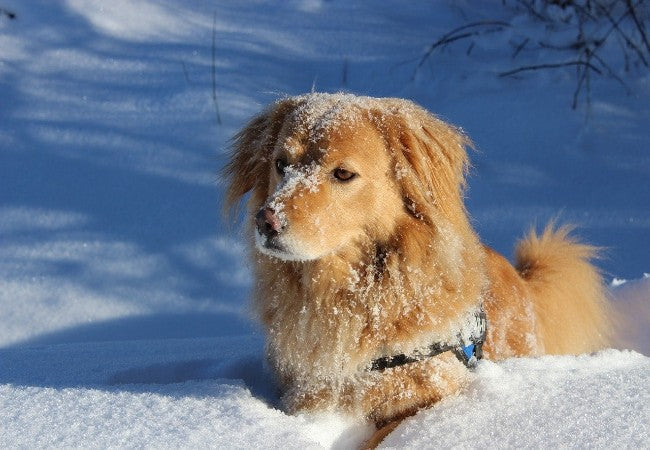What Is Dog Snow Nose? A Vet Approved Guide for 2025 🐶

In this article
What Is Dog Snow Nose? A Vet Approved Guide for 2025 🐶
By Dr. Duncan Houston BVSc
Have you noticed your dog's nose changing from its usual dark color to a lighter shade during the colder months? 🐕🦺 This phenomenon, known as "snow nose" or "winter nose," is a common and typically harmless condition. Let's delve into what snow nose is, its potential causes, and when you should consult your veterinarian. 🧠
🔍 Understanding Snow Nose
Snow nose refers to a temporary loss of pigment in a dog's nose, resulting in a lighter color, often pink or light brown. This change usually occurs during the winter months but can also happen in other seasons or climates. The condition is most noticeable in dogs with dark-colored noses.
🧬 Potential Causes
While the exact cause of a snotty nose remains uncertain, several factors may contribute:
- Temperature Changes: The condition is more prevalent in colder months, suggesting a link to temperature fluctuations.
- Enzymatic Activity: Changes in enzyme activity affecting melanin production might play a role.
- Breed Predisposition: Breeds like Siberian Huskies, Golden Retrievers, Labrador Retrievers, and Bernese Mountain Dogs are more commonly affected.
🩺 Is Snow Nose a Cause for Concern?
In most cases, a snow nose is purely cosmetic and doesn't indicate any underlying health issues. The texture and moisture of the nose remain unchanged, and the pigmentation often returns to normal over time. However, if you notice additional symptoms such as:
- Crusting or sores on the nose
- Bleeding or discharge
- Changes in the nose's texture
- Persistent depigmentation
It's advisable to consult your veterinarian, as these signs could indicate other conditions like nasal dermatoses or autoimmune disorders.
🛡️ Preventive Measures and Care
While a stuffy nose itself doesn't require treatment, maintaining overall nasal health is beneficial:
- Use Stainless Steel Bowls: Some dogs may develop depigmentation from plastic bowls; switching to stainless steel can help.
- Protect from Sun Exposure: Lighter noses can be more susceptible to sunburn. Consider using dog-safe sunscreen if your pet spends extended periods outdoors.
- Regular Check-Ups: Routine veterinary visits can help monitor any changes and ensure your dog's nose remains healthy.
📱 Enhance Your Pet's Health with Trusted Resources
For additional support and personalized guidance, consider these resources:
- Ask A Vet: Connect with veterinary professionals for expert advice. 🩺
Empower your journey as a pet parent by downloading the Ask A Vet app today and ensure your furry friend thrives in 2025 and beyond! 📲🐾






